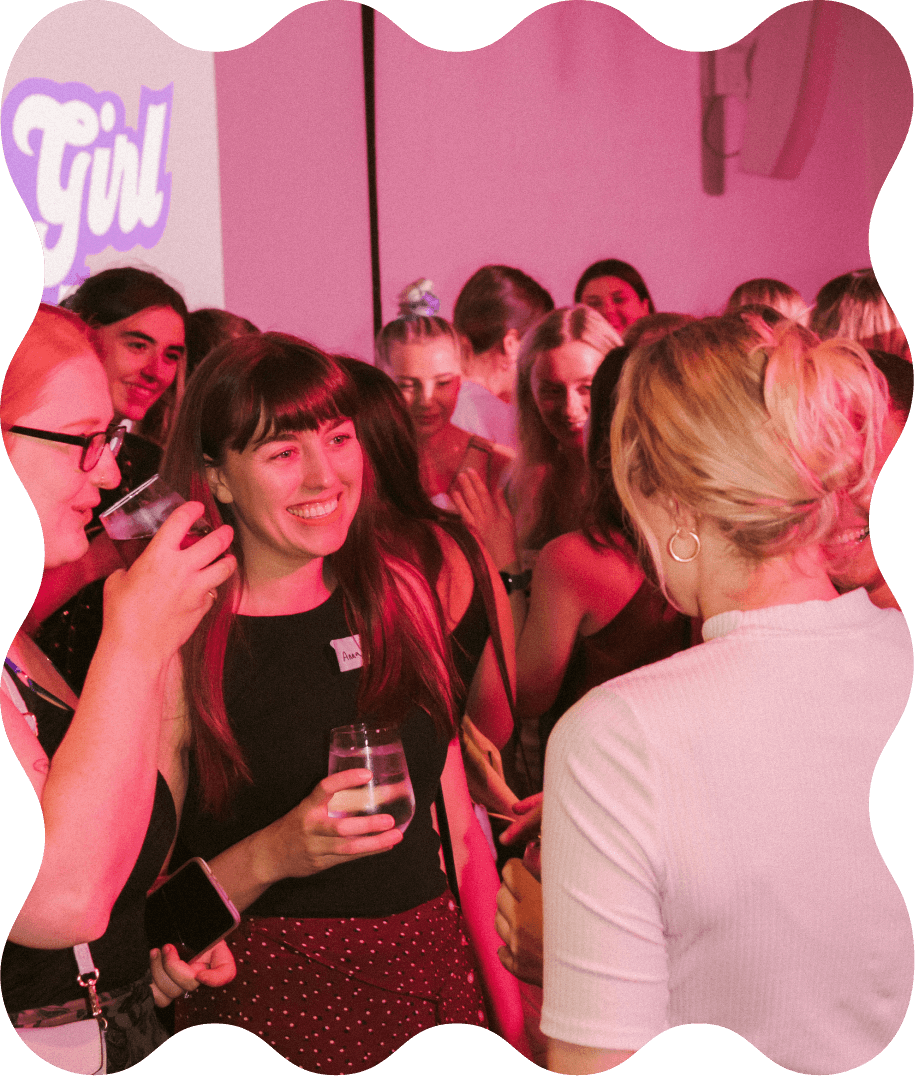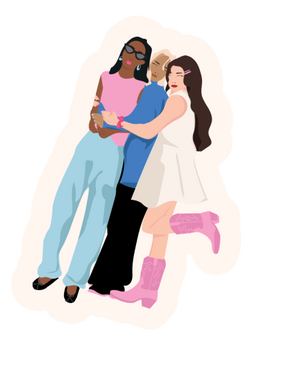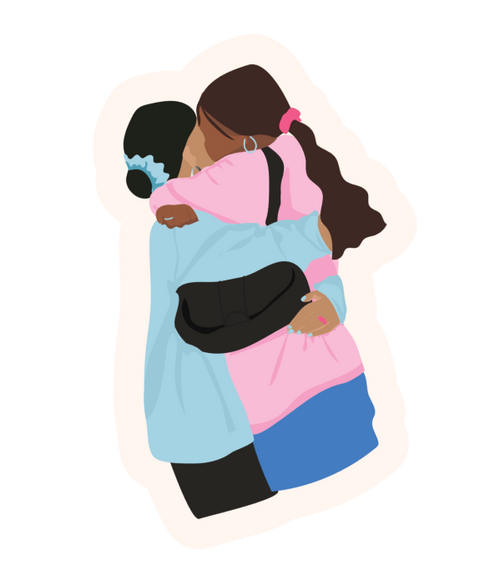The drinking culture at university was something I never could have prepared myself for. As a naïve 19-year-old who had never been drunk, I was plummeted into a world where being sick or passing out after a night out was a rite-of-passage into the world of a student, and seemingly one of the only ways to be accepted and make friends.
With so much of university life revolving around getting drunk and going out, my decision to stop drinking in my final year left me terrified over what that meant for my friendships, my night life and my desire to ‘fit in’. It was a truly eye-opening experience and, as cliché as it sounds, gave me the clarity to really figure out who I wanted to be.
These are the things I learned as a party girl turned sober student at university.
You will lose friends, but for all the right reasons
I had a particularly wild first year at uni, as it was the first time I’d properly experienced alcohol and I was so excited to be out in the world, making friends after a quiet, shy school life. I used to go out every night, staying up until the sun was starting to rise, and barely surviving in this cycle of partying and studying with so little sleep.
The one thing that kept me going was how many friends I made through creating this character of ‘Becca – the party girl’, something teenage me could never have imagined. So, when I gave up drinking, and the unrealistic party schedule, in my final year, I was met with comments like ‘you’re so boring now’ and ‘we miss first year Becca’.
It massively dented my confidence, and friends who I’d once stayed out with until 5am, drifted further and further away. I tried desperately to rekindle these friendships, asking people out for coffee dates and catch-ups during the daylight hours, only to be met with ‘why don’t we go out like we used to?’. It was in these moments that I realised something: these people weren’t friends with me, but a version of me I could no longer satisfy them with. In fact, I realised they were never ‘friends’ at all, just company for nights out.
The people who stuck around were the ones cheering me on and who liked the Becca underneath the drunken parties. I made new friends in my final year who have stuck with me since I graduated five years ago. The ‘friends’ I lost, I realised, were never really there in the first place.
No one will really know you’re not drinking
When I started attending uni parties sober, it was daunting to think about being ‘caught out’, but also felt strange to consider what I actually enjoyed about going to parties in the first place. I love a good boogie and a deep chat, but the thought of having to do that without a drop of alcohol initially seemed impossible.
I remember arriving at a house party and watching a group drunkenly dance without a care in the world. The music was great and, when a friend spotted me, it wasn’t long before I was thrown into the group too. I started to awkwardly dance, but the more I watched those around me fling their drunken limbs in the air, it suddenly hit me that no one would notice if I danced silly and free like them, because no one would know that I wasn’t drinking. I busted out the best of my moves and sang at the top of my lungs with the rest of them.
Comments like ‘how much have you had?’ were slurred in my direction, to which I replied with jazz hands, safe in the comfort of their morning-memory-loss. It takes a huge amount of confidence to be yourself these days, but the safety blanket of being the sober one on a drunken night out allows the weird and the wonderful to take place. So, instead of being embarrassed or daunted at the thought, enjoy the pure bliss of knowingly letting your hair down and living every second of it.
You might save someone’s night
We all know how quickly a fun night out can take a turn for the worst, particularly at uni, where phrases like ‘I was paralytic last night’ are worn like crowns of honour for a night out done well. The pressure to drink to excess to have a good time is a dangerous rhetoric which can lead to regrettable and upsetting situations.
While it’s not the sober person’s job to wear the cape and come to the rescue, being a position to help someone was an important part of the journey for me. From supporting girls crying in the toilets, witnessing cheating partners and handing out glasses of water, I quickly realised that being the sober person meant that I had the clarity to make small decisions that could help change someone’s night for the better.
This was most prevalent on a birthday night out for a mutual friend. My boyfriend and I were enjoying a sober dance, having been invited out for his friend’s 21st. The night came crashing to an end when one of her friends ran up to us in a panic before leading us to the medical room where the birthday girl was vomiting, having been kicked out of the club. I asked if there was anything we could do, and the drunken friends asked if we could take her home because they wanted to stay out. I was in shock. Did a fun night mean more to them than caring for their friend? We took her home and she was fine.
I’m sure her friends would never knowingly have acted like that, but alcohol and the pressures to have a good night out obscured their judgement. As I said, it’s not the sober person’s job to save the day, but I slept easier that night, knowing that I was lucky enough to be in that position to help someone who needed it.
Now, four and a half years without drinking and approaching my late-twenties, I’m still learning everyday about myself and what it means to be a sober twenty-something. While the parties aren’t as frequent or wild, the drinking culture will probably never evade me. I’m keen and willing to keep going, keep growing and keep on dancing, because if uni didn’t stop me, then I believe nothing will.
Written by Becca Harrington
Becca Harrington is a 26-year-old writer, poet and co-founder of Forever Endeavour magazine, a creative writing online magazine for aspiring writers. She is passionate about learning, spreading awareness and writing about intersectional feminism, as well as the challenges she faces with her physical and mental health. She loves helping other writers find catharsis through creativity and looks forward to publishing her own book one day.












